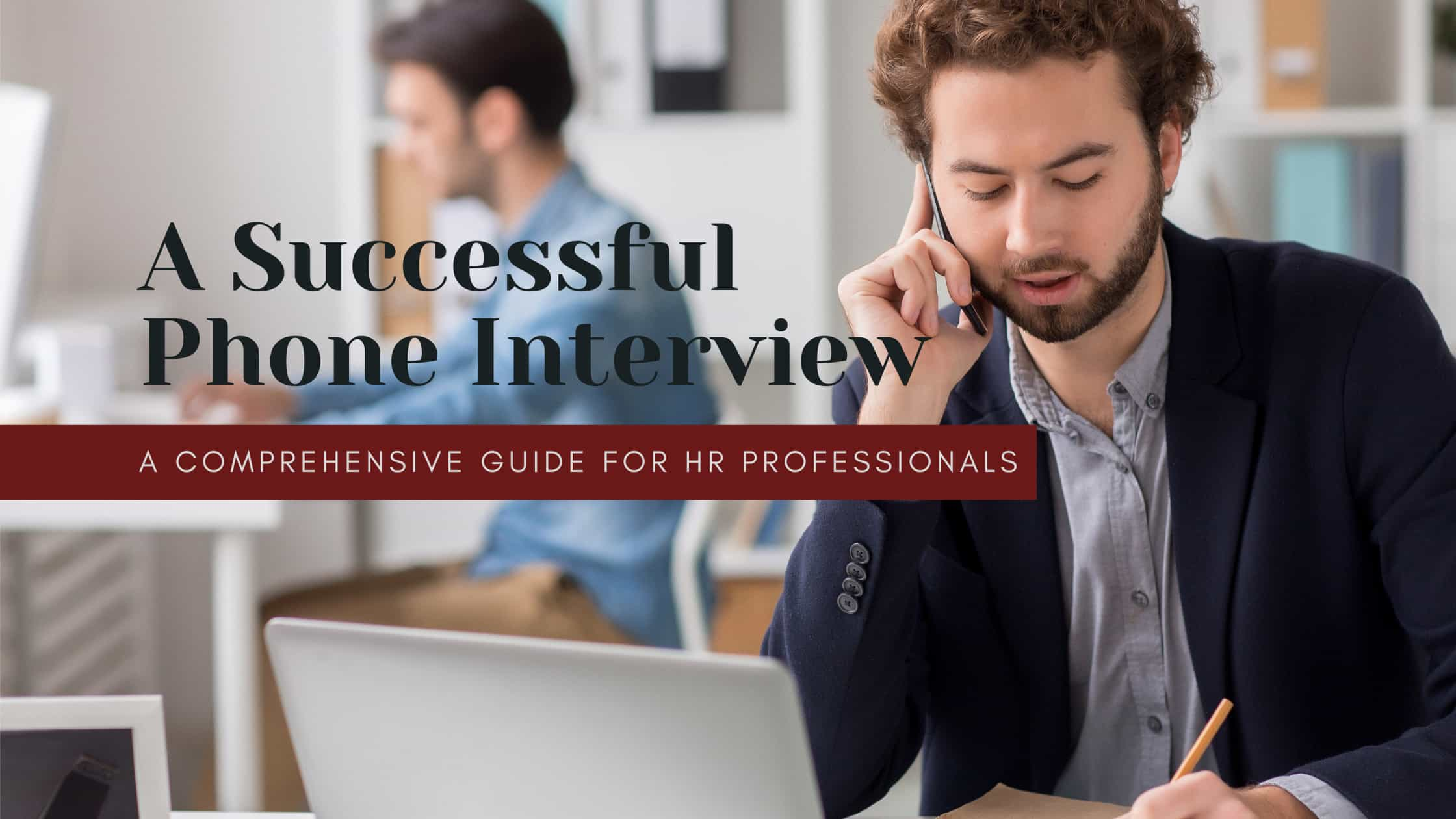Phone interviews are one of the most popular and cost-effective ways to screen job candidates, especially when recruiting for remote positions or when candidates are not located in the same geographic location as your organization. While the process is straightforward, it can pose various unique remote recruiting challenges. HR professionals must use phone interviews to determine whether candidates have the required qualifications, experience, and soft skills to be a good match for the company. From preparing and setting the stage to asking open and thoughtful questions, HR professionals should take specific measures to guarantee phone interviews accomplish their intended goals: finding the best candidate for the position.
Here are some tips to help you conduct a successful phone interview in your organization:
1. Plan Your Phone Interview in Advance
Before scheduling your first round of phone interviews, arm yourself with a detailed job description, a list of essential skills and qualifications, and questions tailored specifically for the job requirements. Schedule the interview on a particular day, allowing a flexible amount of time for each candidate. Prioritizing organization is especially important when conducting more than ten interviews, ensuring all candidates are treated the same way.
2. Establish Rapport Early On
A good phone interview resembles a great conversation. Begin every phone interview by welcoming and thanking the candidate for their time. Introduce yourself and explain how the interview will proceed. If the candidate seems nervous, let them know they have about five minutes to relax and ask questions.
3. Lead with Open-Ended Questions
Set the tone of the interview by starting with open-ended questions like:
- What interested you in applying for our company?
- Can you tell me about your most recent job role and your set of responsibilities?
- What do you consider to be your greatest strength(s), and how have you made the most out of them in your previous roles?
The questions should allow the candidate to expand and express themselves, giving insight into their skills, attitudes, and values. Once they respond, provide feedback where necessary, acknowledging relevant points.
4. Listen Carefully and Take Notes
Active listening is crucial in phone interviews, enabling you to interpret the candidate’s tone, pace, and choice of words to help gauge their personality and cultural fit. Avoid clutter or distractions that can impair insightful listening while taking notes. Note down relevant information that reveals the candidate’s suitability for the job and highlight their strengths and weaknesses.
5. Use Behavioral-Based Questions
The best way to understand how a candidate could handle specific scenarios is by asking behavioral-based questions that relate to your provided job responsibilities. Behavioral-based questions allow a candidate to open up and share what they did in a specific situation, allowing the interviewer to understand how they approached the situation and how their approach aligns with our organization’s values.
Some examples of behavioral-based questions include:
- Can you talk about a time when you had to overcome a significant obstacle to get a job done?
- Have you ever dealt with a conflict at work? Tell us about how you resolved it.
6. Wrap-Up the Call and Give Feedback
Just like a fantastic conversation, wrap up your interview by recapping the highlights of their thoughts and inquiries about setting a timeline for hiring. At this point, you can offer the candidate feedback on their candidacy and notify any next steps in the process. Consider contacting suitable candidates shortly after the phone interview, while keeping the other candidates abreast of future opportunities.
In Summary
Phone interviews help HR teams effectively screen job candidates, ensuring that the most qualified candidates move on to the next rounds of interviews. Preparing well in advance of each interview, establishing rapport with candidates, asking open-ended and behaviorally-based questions, and listening carefully, will make the phone interview process more effective for everyone involved. By following these steps, HR professionals can ensure that they conduct successful phone interviews and get closer to finding the ideal candidate for open positions.






